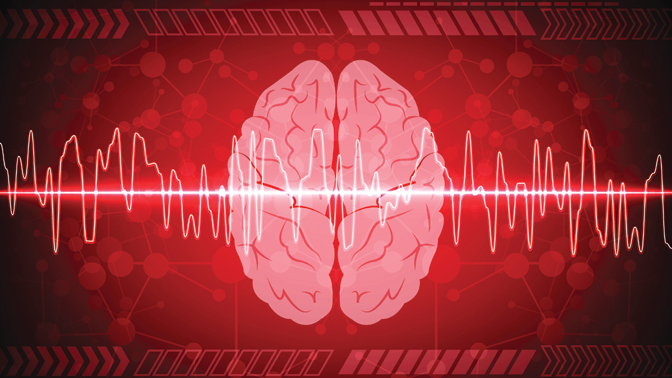
An international team of researchers has shown—for the first time—that mutation of the KRAS gene can promote the development of abnormal blood vessels in the brain, increasing a person’s risk of hemorrhagic stroke.
During a hemorrhagic stroke, a blood vessel in the brain leaks or ruptures, spilling blood into the brain and damaging surrounding tissues. This damage can lead to a variety of complications including difficulty speaking, paralysis and even death. Approximately 40% of all stroke-related deaths are attributed to hemorrhagic stroke.
Particular regions of the brain’s vasculature can be more susceptible to ruptures or leaks. For example, up to 20% of hemorrhagic strokes in children are located in brain arteriovenous malformations (BAVMs), consisting of tangles of abnormal blood vessels. BAVMs are present in 15 out of every 100,000 people and are most often found in patients with no family history of them. Beyond this, very little is known about BAVMs, including how they develop or why they are prone to rupture or leak during a hemorrhagic stroke.
“Even if they don’t bleed, BAVMs can cause seizures or other stroke-like symptoms,” says Krembil Scientist Dr. Ivan Radovanovic. “Patients aren’t always good candidates for the few treatments that are available for BAVMs such as surgery or radiation. So it’s really a condition that requires new therapeutic options, and understanding its cause will open the door to other possibilities.”
Dr. Radovanovic and TGHRI Senior Scientist Dr. Jason Fish, along with researchers in Finland and Switzerland, co-led a study that provides new insight into the biology of BAVMs. Their findings were recently published in the prestigious New England Journal of Medicine.
As part of the study, the research team examined the genetic content of BAVM tissue that was surgically excised from patients. They found that BAVMs from 45 of 72 patients (~60%) contained a mutated version of the KRAS gene, best known for its role in promoting the growth and survival of cancer cells. The altered gene was specifically located in the cells lining the inner surface of the BAVMs’ blood vessels, where it dysregulated the cell’s behaviour and structure. Importantly, it weakened the ‘glue’ that holds the cells together to form blood vessels, potentially making the vessels more likely to leak or rupture.
The findings of the study not only reveal that KRAS plays an instrumental role in the development of BAVMs, but also identify new therapeutic targets to treat them. “Fortuitously, there are already cancer drugs used in clinical practice that dampen KRAS’s effects on cells. The next step will be to test whether these drugs can reverse the effects of mutated KRAS in experimental models of BAVMs,” says Dr. Radovanovic.
This work was supported by the Swiss Cancer League; Novartis; the European Research Council; the American Heart Association; the Canadian Institutes of Health Research; the Canada First Research Excellence Fund; the Canada Foundation for Innovation; the Ontario Ministry of Research, Innovation and Science; the Natural Sciences and Research Council of Canada; the Brain Aneurysm Foundation; the Department of Surgery and Division of Neurosurgery at the University Health Network; and the Toronto General & Western Hospital Foundation. JE Fish holds a Tier 2 Canada Research Chair in Vascular Cell and Molecular Biology. M Tymianski holds a Tier 1 Canada Research Chair in Translational Stroke Research.
Nikolaev SI, Vetiska S, Bonilla X, Boudreau E, Jauhiainen S, Rezai Jahromi B, Khyzha N, DiStefano PV, Suutarinen S, Kiehl TR, Mendes Pereira V, Herman AM, Krings T, Andrade-Barazarte H, Tung T, Valiante T, Zadeh G, Tymianski M, Rauramaa T, Ylä-Herttuala S, Wythe JD, Antonarakis SE, Frösen J, Fish JE, Radovanovic I. Somatic Activating KRAS Mutations in Arteriovenous Malformations of the Brain. N Engl J Med. 2018 Jan 3.

New research by Drs. Ivan Radovanovic (L) and Jason Fish identifies a possible genetic mutation that causes brain arteriovenous malformations and could lead to treatment for the illness.




